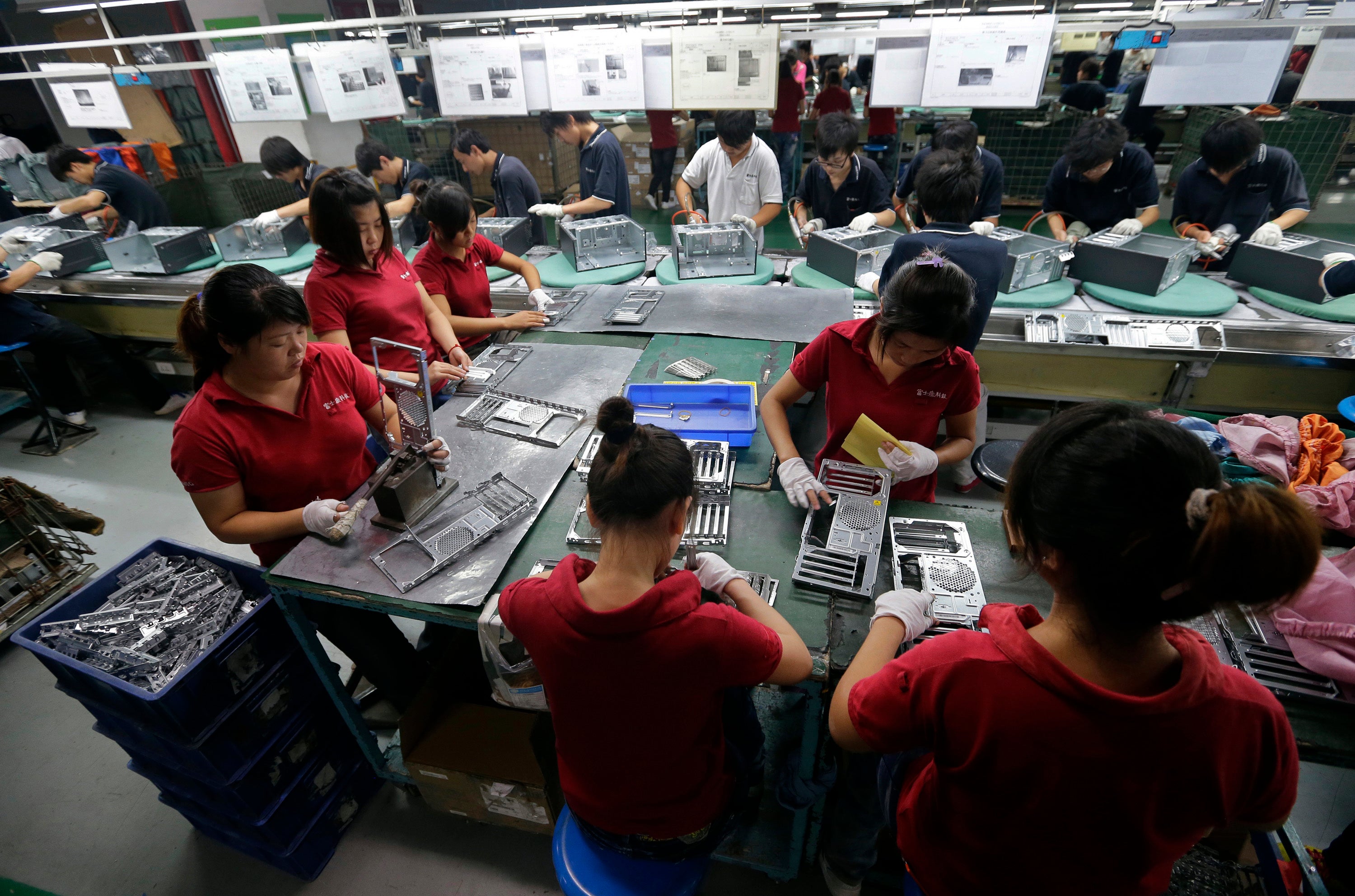The Independent's journalism is supported by our readers. When you purchase through links on our site, we may earn commission.
Are your gadgets built by slave labour? Half of big tech firms 'ignorant' of supply chains
New report surveys companies including Apple, Samsung and Microsoft

Support truly
independent journalism
Our mission is to deliver unbiased, fact-based reporting that holds power to account and exposes the truth.
Whether $5 or $50, every contribution counts.
Support us to deliver journalism without an agenda.

Louise Thomas
Editor
A new report on the supply chains of big technology companies has found that nearly half of the world’s biggest firms could be using forced or child labour without knowing it.
The research, conducted by anti-slavery organisations from the US and Australia, looked at 39 companies’ knowledge of their supply chains including Apple, Amazon, Microsoft, and Samsung.
It found that 97 per cent of those reviewed could not prove that all of the workers in their supply chains were being paid enough to meet their daily needs, and that only one firm – Nokia – had conclusive proof that its workers were paid in keeping with the national minimum wage.
The report noted that ensuring factory workers received a fair wage would affect the final price of gadgets in the West by 1.5 per cent. For a device such as a £500 smartphone this would mean a price increase of just £7.50.
Nearly half (49 per cent) could identify “all of their suppliers at the final stage of production" and only 18 per cent had accurate knowledge of where the raw materials for their goods came from.
Each of the 39 companies was given a grade from A to F, with none of those surveyed receiving the top mark. Nokia ranked the highest with a B+, with Apple and Microsoft receiving the same grade but with a slightly lower score.
Hewlett Packard, Intel, Motorola and Panasonic all received a B grade, with Sony, Olympus and Blackberry receiving C and C minus grades. Amazon Kindle and HTC were graded as a D, with Lenovo and Huawei receiving a D minus. Two companies – Hisense and Palsonic – received the lowest grade, an F.
The report was prompted by growing concerns that our appetite for cheap, disposable gadgets is encouraging ever more harmful labour conditions in electronics factories in countries like China and India.
Major tech firms such as Apple and Microsoft have been repeatedly implicated in using child labour or sweatshop conditions, despite implementing policies that forbid such labour conditions.
"Workers in developing countries work long hours in often oppressive conditions to make the phones, TVs and tablets that we enjoy," Gershon Nimbalker, advocacy manager of Baptist World Aid, one of the authors of the report, told Sky.
"Payment of a 'living wage' is critical in empowering individuals and communities to overcome poverty. If companies don't know or don't care who is producing their products, it's much harder to know whether workers are being exploited or even enslaved."
Subscribe to Independent Premium to bookmark this article
Want to bookmark your favourite articles and stories to read or reference later? Start your Independent Premium subscription today.
Join our commenting forum
Join thought-provoking conversations, follow other Independent readers and see their replies
Comments